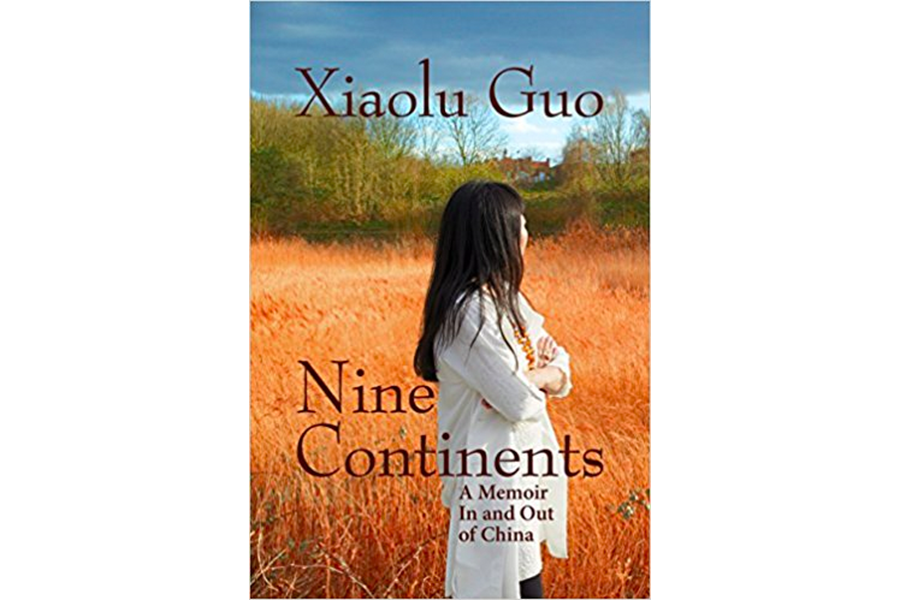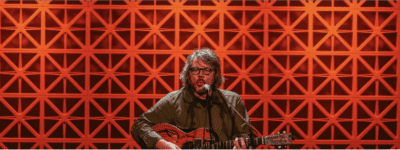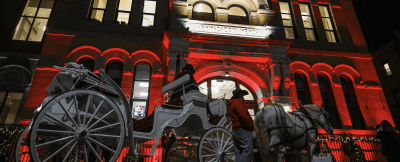Interview with 2018 NBCC Autobiography Award Winner Xiaolu Guo
For the past four years, the National Book Critics Circle has partnered with The New School’s MFA Creative Writing program, allowing the students to interview each of the NBCC Awards Finalists. In addition to building excitement for the Awards Finalist Reading and Ceremony held at the New School March 14th-15th, these interviews have built an intergenerational bridge between the writers of today and tomorrow.
This year, as part of the ongoing collaboration, and in support of the NBCC’s conversation about reading, criticism, and literature that extends from the local to the national, Brooklyn Magazine will publish and promote the interviews between NBCC Finalists and the current students of The New School.

As a Chinese writer based in London, Xiaolu Guo is particularly concerned with the topic of transnational identity. In what is both a memoir and bildungsroman, Nine Continents (Grove) takes us back to the start of Xiaolu’s peripatetic upbringing. She narrates her journey from the small fishing town, Shitang, to the communist center, Wenling, from the creative hub that is Beijing, and to London where her career took flight, and does so with the panache and severity imbued in her earlier works. Years after leaving China, the birth of her daughter urges her back to her homeland and to the life she left behind. I spoke with Xiaolu recently about the steps she took to confront her youth in 1980s-1990s China and the way the past has shaped her present.
Would you say that your formative years of illiteracy influenced or spurned your desire to write at all?
For me, it has to do with lack of imagination: if someone has that in her earlier years and wants to have an expanded life through imagination, she will probably begin to write. I don’t think I can isolate one event from another in my early years in terms of the making of a future writer. It is all connected.
Each part of the book is broken up into essays. When you started to write, did you plan to format it that way; or did it take that form as you recalled different aspects of your childhood?
I somehow never believe the “perfect narrative.” I trust more of a fragmented structure, especially because I am working with memories and reflections. I also felt like I was writing a diary again. I wrote some small essays on my childhood before the book was formed. It felt more natural this way.
What methods or rituals did you use to tap into your childhood and access those memories?
Before I wrote this book, I wrote a few novels based on my past experiences as a struggling young woman in a mad world. So, there is this basic distance between a (not-so-young) narrator and his/her own past. After all, a writer cannot only use their body to write; their head has some distance, their hands, and heart. And this distance is the method. It was painful from time to time, but I am not a first time writer, so I have gone through the digestion process of certain events in my life.
When reading the scene about leaving your grandparents, specifically your grandmother, I could feel the pain and confusion seven-year-old Xiaolu felt. There are other moments in the book that are equally as visceral and I imagine it must have been hard to put yourself back in those places. Were there memories included in the book you were especially reluctant to engage with or delve into? And how did you overcome that reluctance and reticence?
I actually always tried to delve into those moments. I tried to relive the past to feel that moment as if it was the first time I was experiencing it. I have never tried to avoid it. Isn’t that what writing is about?
You’ve heard the quote, “What’s past is prologue?” I wonder how you feel about that idea after navigating through your own past. Do you view it as something that’s simply set the stage for the rest of your life? Or something that is constantly informing your decisions now?
The past is prologue but also a constant-flowing present. It is inside a person’s psyche. As a person, I try to live in a creative or new way at each major stage of my life, but as a writer, I really rely on my past. It’s my major resource, and of course, I have gathered some intellectual resources, too.
There’s a moment towards the end of the book when you’re visiting Shitang where you wonder if Moon looks at the ocean and sees it as “another part of her mother’s being.” Is that how you view the ocean? As part of your past? As part of your being? Would you say they’re one and the same?
Thanks for such a lovely comment, and thanks for noticing that part of the book. I think you have answered the question with all of these possibilities.
I read your article in The Guardian where you critique the English language because the lexical structure isn’t actually related to the meaning of a word. Whereas, in Chinese, characters and words relate to pictures and images. Would you say you were trying to do a similar thing here using the story of Monkey? As in, connecting your words and your written story with a familiar image?
I think so. When I was structuring this book, I tried to find a metaphorical layer to represent my journey—something from an ancient past, something to do with my cultural identity. Because I didn’t want the whole narrative to be a stab of concrete realness. It should have some layers. The monkey is me, and I was experiencing the creature’s journey in a very particular way.
This interview has been edited and condensed for clarity.
You might also like 


























